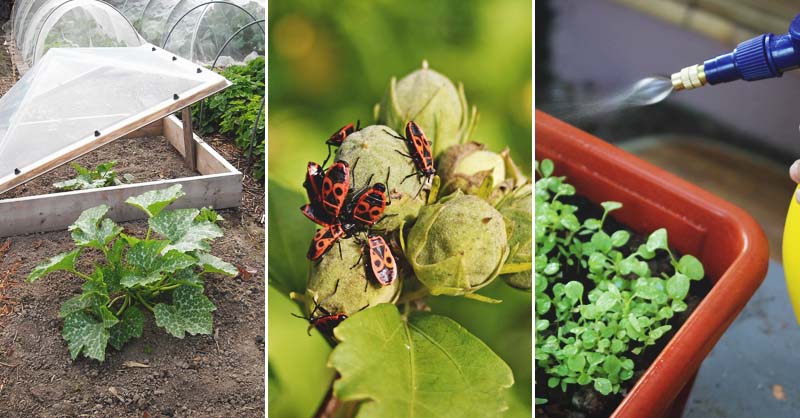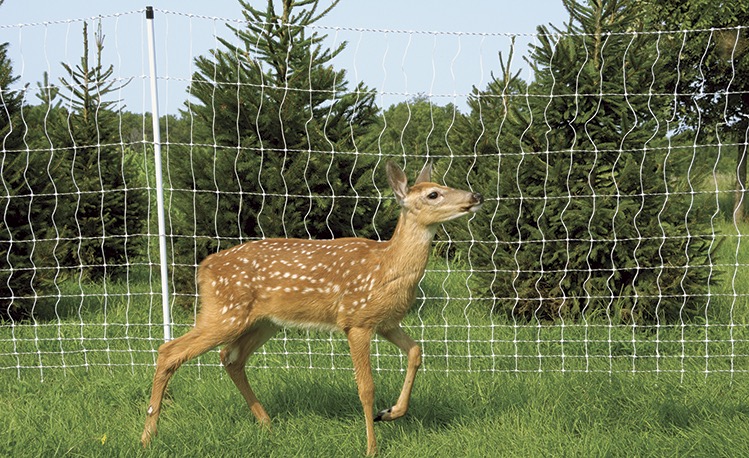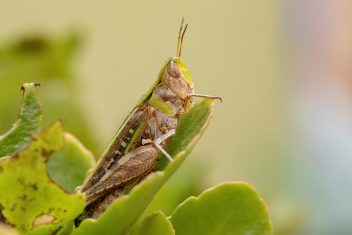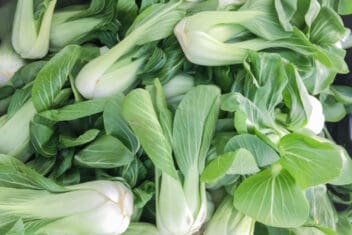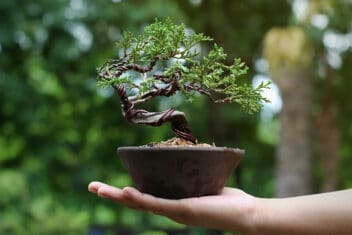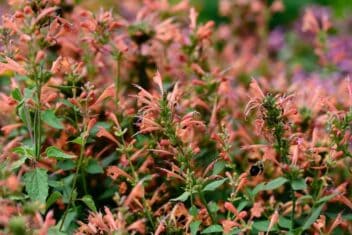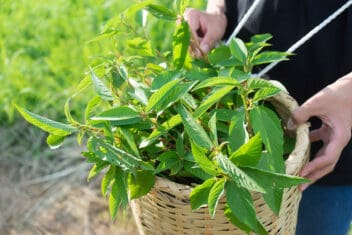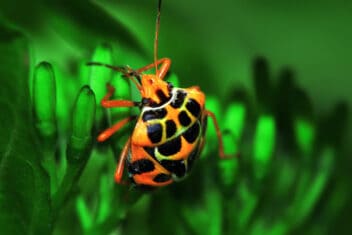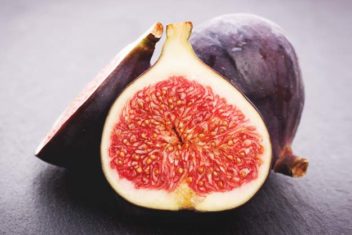Have you tried every trick available on store shelves to keep your garden pest and disease-free, and still find yourself in fear of losing the war?
Well, you should know there are many natural approaches to keeping your garden clear of pests and bursting with vitality.
However, any treatment takes around 2-4 weeks to show results. If you are ready to kick pests and disease from your garden for good, you need to try these tips:
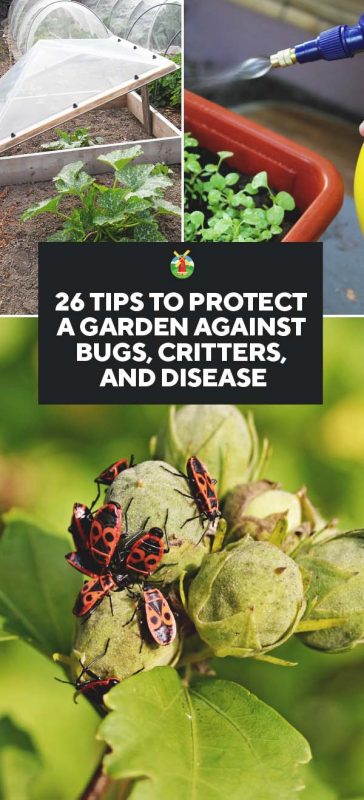
How to Protect a Garden
1. Good Sanitation
Practicing proper sanitation is one of the leading ways to keep your garden both disease and pest free. If you clean up debris from the plants you don’t give disease or pests anywhere to hide, which will give your garden a layer of protection.
2. Sturdy Fences Make Good Neighbors
If you are dealing with larger pests in your garden, like deer, consider adding a sturdy fence to the perimeter of your yard or property. These fences will make it difficult for the deer to munch on your food. They’ll begin to look for another food source which isn’t quite as hard to reach.
3. Add Good Insects
When you find harmful insects in your garden, the best way to deter them is to invite good insects into it. These beneficial insects will eat harmful insects. Consider attracting bugs such as:
- Ladybugs
- Praying mantis
- Hoverfly
- Lacewings
- Honeybee
- Dragonflies
You can also attract bats to your garden who would love to munch on harmful bugs.
4. Hand-Pick the Big Bugs
There are certain bugs in your garden you will be able to see easily. Bugs like slugs, Japanese Beetles, cabbage worms, and squash bugs should be visible. When you see them, pick them off your plants and remove them from your garden.
5. Kick the Sickly Plants Out
There will come a time when you look over your garden and find a plant or two which have either been ravaged by insects or with a disease. These plants aren’t healthy and didn’t develop strong roots.
You should remove them quickly, but do not compost them. You don’t want bugs or disease to spread through your compost.
6. Try Natural Sprays
If you’ve tried store-bought insecticides or pesticides to no avail, or you are trying to garden organically, you might want to try these natural options. You can spray garlic spray, mineral oil, or salt spray on your plants to deter pests.
7. Row Covers
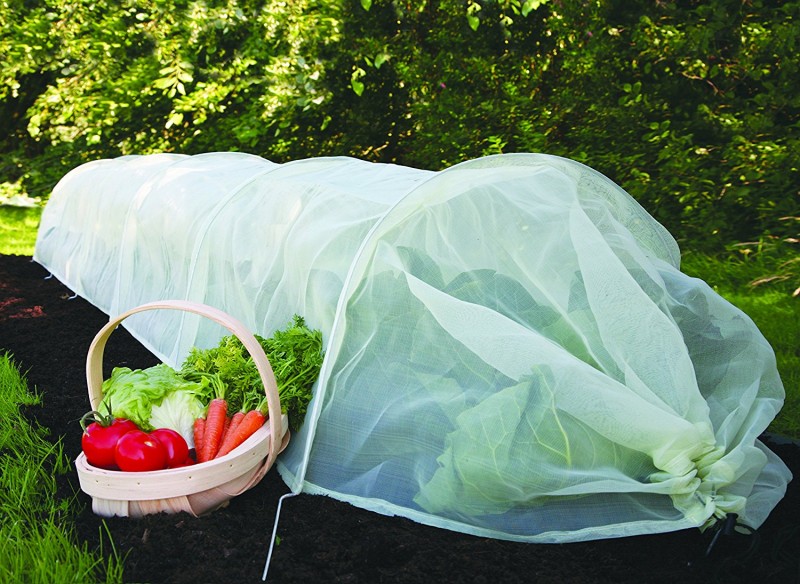
Row covers are a great way to cover your plants. It will keep bugs from jumping back and forth between rows in your garden. It is a simple method that could deter quite a few pests.
8. Cloche Your Plants
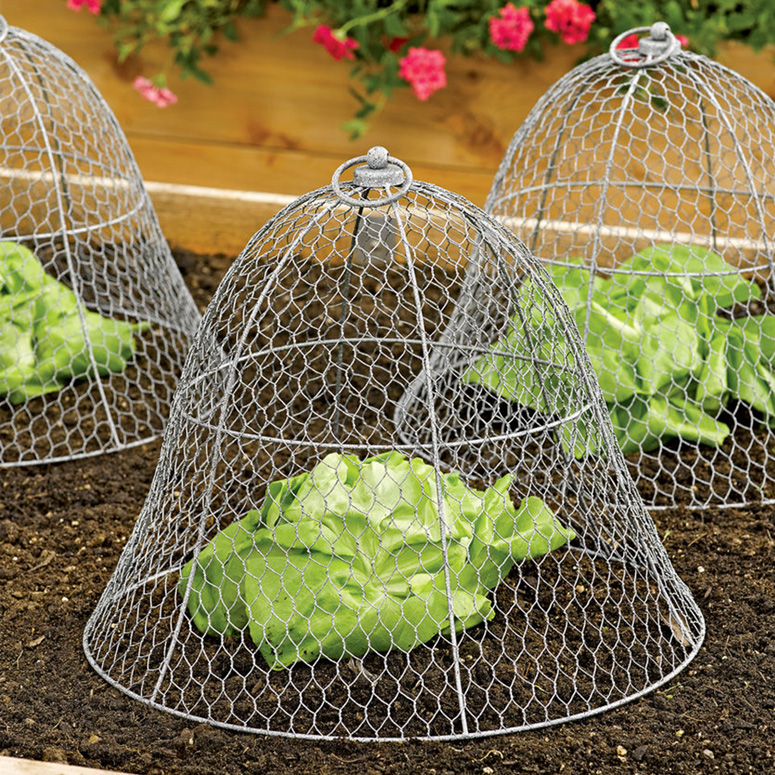
Another option, when you only need to cover a few plants, is to use wire or PVC hoops which should be covered with cloth, and place them over the desired plants.
Once the plants are covered, they are protected from any pests who might try to attack them. This is a good option for seedlings or specific plants that are being brutally attacked by pests.
9. Plant Collars
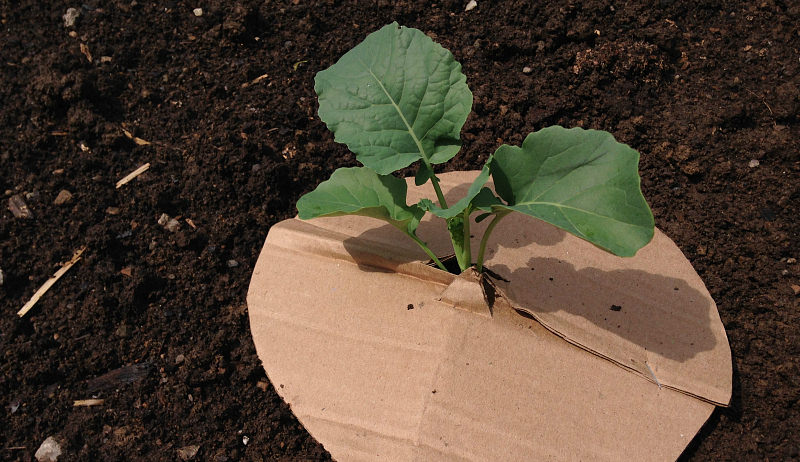
If you find yourself dealing with cutworms, plant collars are a great option. You cut circular pieces of cardboard and place them around the base of your plant. The carton deters cutworms from being able to make it to the bottom of your plant to feed.
10. Net Your Plants
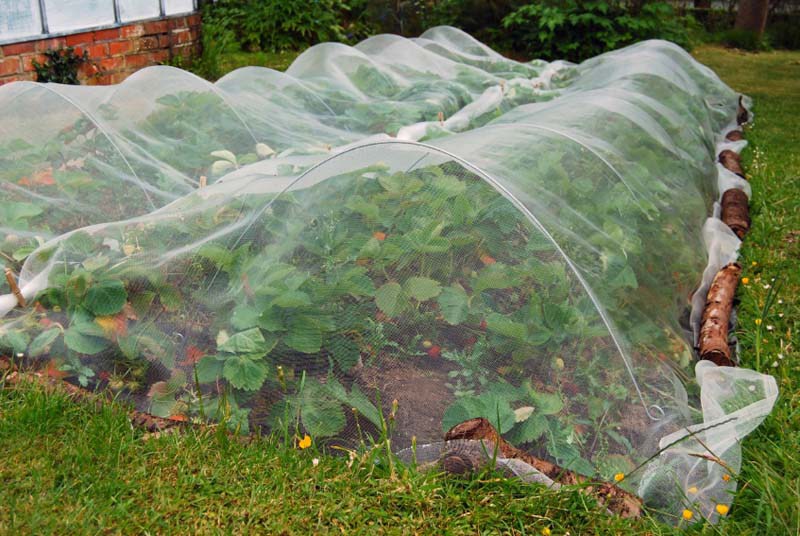
Birds can be a big issue, especially if you are raising berries. Instead of losing your harvest, you can cover the plant to where nothing can get to them thanks to the netting.
When you’re ready to pick, pull back the netting and put it back when you’re done. Keeping your harvest to yourself with netting is simple.
11. Spacing Matters
Spacing is essential when planning your garden. If you don’t put enough space between plants, you won’t get enough airflow between them. It can be the perfect breeding ground for disease. Make sure your plants have room to breathe.
12. Keep Foliage Dry
When watering, it can be easy to get the foliage of your plants wet. Try to avoid this as it is an easy way to spread disease among your plants.
If you do have to use overhead watering, try to water in the morning. At least, the plants will have the heat of the day to dry off thoroughly.
13. Rotate Your Crops
Crop rotation is important in every garden. If you leave your plants in the same place year after year, pests begin to know where to go to feed. It also gives diseases a chance to take root in your soil.
All of this can be avoided by following a 4-year crop rotation schedule. Meaning your plants won’t be planted in the same location for 4 years at a time.
14. Boost Your Soil
The soil is the base of your garden. If you have sandy or clay-filled soil, you are going to have moisture issues where you either have too much or too little.
Moisture issues can lead to disease. You will have to make sure you test your soil and amend it. This will allow it to drain well and feed your plants accordingly.
15. Mulch
It is important to mulch around the base of your plants. Mulch will keep dirt from getting on the stem of your plants when being watered.
Also, it will help to retain the necessary moisture for each plant to keep it well watered.
16. Stay on Top of Weeds
Weeds will not only give pests and disease an excellent breeding ground, but they also compete with your plants for nutrients. Therefore, it is important to pull weeds as soon as you see them. If you allow them to take over your garden, it is difficult to get them back under control.
17. Take a Cold Shower
Did you know cold water has a way of causing bugs to head for the hills? If you have aphids on your plants, spray them with cold water. Coldwater will make them let go of your plants and move out of your garden.
18. Soapy Water Does the Trick
If you have stubborn bugs in your garden, try adding soap to the cold water. This causes the outside layer of their bodies to deteriorate and should deter aphids and mites from staying around in your garden.
19. Soapy Water with Pepper
When you go to your garden, it is disheartening to see bugs making a meal out of plants you’ve worked hard to grow. Try spraying a soapy water solution which also has pepper in it. This makes the plants taste less desirable.
20. Soapy Water with Baking Soda and Vinegar
If you are trying to garden organically, it can be disheartening when you see fungus appearing on your plants. Proper spacing and watering by an irrigation system will help.
If you’ve already developed fungus, though, try spraying soapy water with baking soda and vinegar mixed in on your plants. It is a natural fungicide.
21. Dish Soap and Milk
Powdery mildew is another disease gardeners face, especially when growing grapes. If you find powdery mildew forming on your plants, create a soapy water solution with milk added to it. This is a natural way to rid your garden of this disease.
22. Live Traps
Do you have groundhogs, rabbits, or squirrels munching up your veggies? Consider putting a live trap in your garden. It won’t hurt the animal, and you can relocate them from your garden once they’re caught.
23. Healthy Plants Make the Difference
Healthy plants with strong root systems are naturally able to withstand attacks from disease and pests. Japanese Beetles can munch on healthy plants, and they’ll bounce back.
If you give your plants a good soil to grow in, give them ample water without wetting the foliage, and do what you can to keep pests and disease at bay. You should have plants that can hold their own when trouble comes knocking at their door.
24. Make the Ground Sharp
When you begin to see slugs and other pests approaching your plants from the ground, it is a good idea to crush your old eggshells and toss them on the ground around your plants. You can use diatomaceous earth as well.
Once it is spread on the ground, it will cut the creepy-crawly pests to pieces as they slide over it and save your plants in the process.
25. Plant Smelly Herbs
Bugs don’t like certain smells. Therefore, it is a good idea to plant herbs which produce these smells in your garden to deter pests. Consider planting:
- Citronella
- Basil
- Lemongrass
- Mint
- Fennel
26. What’s Good to Us is Poison to Them
There are certain items we use daily which are harmless to us but are lethal to pests. You can add things like salt, flour, and beer to your plants.
This won’t harm us at all, but when the bugs taste it, it will be like drinking poison to them. Consider sprinkling or spritzing your plants with these items to give pests the boot.
Well, you now have 26 different methods of deterring pests and diseases from your garden. Hopefully, this will help you produce a beautiful harvest and a gorgeous garden too.
